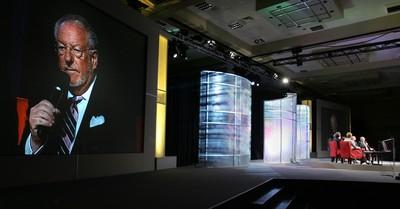A push to keep shoppers in inner cities

America’s urban core residents export more than $42 billion annually in consumer spending to suburban stores, a massive chunk of spending the nation’s mayors would like to keep in their cities.
But keeping money in America’s urban centers is difficult when top private and corporate retail firms are so busy chasing suburban consumers that they tend to overlook city residents, who spend more than $122 billion every year.
In Las Vegas, city officials are offering as much as $5 million in incentives to attract a grocery store to one urban neighborhood and require new developments to make up to 70 percent of ground floor, storefront space available for retail.
The idea in Las Vegas, as in other blighted urban cores, is to encourage retail development to regain some of the economic clout that’s been fleeing to the suburbs since the 1960s.
“As a result of that, the downtown was suffering from lethargy,” Las Vegas Mayor Oscar Goodman said Monday at the Las Vegas Hilton during the International Council of Shopping Centers convention.
Goodman was one of seven big-city mayors who participated in a discussion on how best to woo retail back to urban communities.
The challenge, the mayors agreed, boils down to making the potential economic gain for retailers outweigh the real and perceived drawbacks to doing business in the inner city.
In Las Vegas that means offering big incentives to whatever supermarket moves in to fill the void in the neighborhood around Owens Avenue and H Street that the Vons chain abandoned in 2004.
The incentives are justified, Goodman said, because the return of a major grocery retailer to West Las Vegas could spur even more much-needed economic growth in the area.
“That really is the magnet that draws together the neighborhood,” Goodman said of grocery stores in general. And with incentives and pent-up demand in the wake of Vons’ departure, “whoever is going to be going there is going to make a fortune,” he added.
Other cities represented in the discussion also offer incentives for retail development. Louisville, Ky., Mayor Jerry Abramson said his city offers businesses $50,000 and $100,000 forgivable loans.
Oklahoma City Mayor Mick Cornett said his city refurbished 75 urban schools partly to make neighborhoods more attractive for economic investment.
The retail convention, which runs through Wednesday at the Las Vegas Convention Center, is a hub of wheeling and dealing between developers, retailers, landowners and local governments.
Cities are competing for retail developers’ attention with outskirts communities teeming with big-spending suburbanites and flashy, upscale shopping centers.
Judi Lapin, a member of the International Council of Shopping Centers’ board of directors, said retailers face five categories of obstacles to doing business in urban areas. They are crime, low concentrations of customers within retailers’ traditional demographics, potential emigration of customers who may leave the city, difficult site preparation and environmental cleanups, and inadequate room for parking.
And even when cities solve some of those problems by preventing crime and attracting new residents the reputation of urban neighborhoods as a rough place to do business can persist.
Newark, N.J., Mayor Cory Booker said crime is down 25 percent in his city and the area is home to one of the largest concentrations of colleges and universities of any urban area in the nation.
But Newark’s tough reputation persists and the city is only now beginning to reverse an exodus of residents that drained its population by half since the 1960s.
“The challenge we have in Newark is not only the reality, but the perception,” Booker said.












